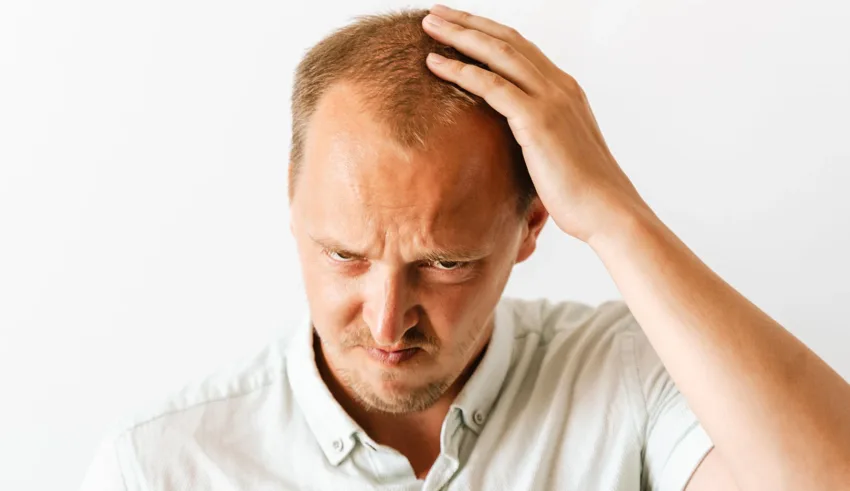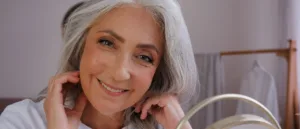
If you are undergoing chemotherapy as part of your cancer treatment, you may be worried about losing your hair. But do all chemotherapy drugs cause hair loss? And is there something you can do to prevent this possible side effect? To answer these questions, we reached out to the dermatologist Dr. Makram Alwaez, who will discuss the relationship between chemo and hair loss and give you tips on how to deal with it.
Why does chemo cause hair loss?
According to Dr. Makram Alwaez, chemotherapies are powerful drugs that attack fast-growing cancer cells. Unfortunately, these drugs also attack other fast-growing cells in your body – including those at the root of your hair.
Chemotherapy can cause hair loss all over your body, not just on your scalp. Sometimes hair from eyelashes, eyebrows, armpits, pubic hair, and other parts of the body also falls out. Some chemotherapy drugs are more likely than others to cause hair loss, and different doses can result in simple thinning or complete baldness.
What can you expect?
Hair usually begins to fall out two to four weeks after treatment begins. It may fall out very quickly in clumps or gradually. You will probably notice accumulations of loose hair on your pillow, in your hairbrush or comb, or in your sink or shower drain.
Hair loss will continue throughout your treatment and up to a few weeks afterward. It will depend on your treatment whether your hair will thin out or become completely bald.
Does hair loss from chemo grow back?
It can take several weeks after treatment for your hair to recover and start growing again. Fortunately, Dr. Makram Alwaez points out that hair loss due to chemotherapy is temporary. He adds that about 60% of people experience this problem from chemo.
When your hair starts to grow back, it will probably look slightly different from the hair you lost. But this difference is usually temporary. Your new hair may be curlier than before or gray until the cells that control the pigment in your hair start working again.
How to prevent hair loss during chemotherapy?
In general, it is impossible to prevent hair loss, but it is possible to manage it. Follow these steps throughout your treatment to minimize the frustration and anxiety associated with hair loss.
Before treatment:
- Be gentle with your hair. Don’t bleach, color, or perm your hair as this can weaken it. Air dry your hair as much as possible and avoid heated appliances such as curling irons and hot rollers.
- Consider cutting your hair. Short hair tends to look fuller than long hair. So when your hair falls out, it won’t be as noticeable if you have short hair.
- Put on a head covering. Now is the time to think about wigs, scarves, or other head coverings. It’s up to you to decide if you want to wear a head covering to hide your hair loss.
During treatment:
- Pamper your remaining hair. Continue your gentle hair strategies throughout your chemotherapy treatment. Use a soft brush. Wash your hair as often as necessary. Remember to use a gentle shampoo.
- Protect your scalp. If your head is exposed to the sun or cold air, protect it with sunscreen or a head covering. Your scalp may be sensitive during treatment, and extreme cold or sunlight can easily irritate it. Having no hair or less hair can make you feel cold, so a head covering can make you more comfortable.
- Be gentle with your hair. Being gentle with your hair reduces psychological distress and minimizes breakage and shedding. It is also recommended to use a gentle shampoo on the scalp.
After treatment:
- Continue to care for your hair gently. Your new hair growth will be incredibly fragile and vulnerable to damage caused by styling products and heaters. Avoid coloring or bleaching your new hair until it is strong. Processing could damage your new hair and irritate your sensitive scalp.
- Choose a shampoo that is scalp-friendly. People can use thinning hair shampoos to manage mild to moderate hair loss. Volumizing shampoos can also help make hair fuller. A person may also consider asking a doctor about shampoos for hair regrowth. Dr. Makram Alwaez points out that a medical shampoo is very helpful in these cases. The following shampoo strengthens, adds volume, and stimulates hair growth.
Why we love it: This restorative shampoo is formulated to fortify hair strength and resilience while promoting healthy-looking hair.
Ducray Anaphase + Anti-Hair Loss Complement Shampoo
- Be patient. You should know that your hair will most likely grow back, but be patient as this might take some time.
Things to remember
During chemotherapy, you may experience hair loss. This can depend on the dosage of the medication used, the specific drugs used, and the combination of treatments.
Whether you simply notice more hair in your brush or clumps falling out in the shower, hair loss can be emotionally devastating, and the support of your loved ones is crucial. You can take steps to cope with hair loss, including wearing a wig or scarf, changing your hairstyle, and taking it easy on your hair. Explore all your options and make the choices that are right for you.
While fighting cancer, the most important thing is to stay emotionally and mentally strong for the fight. Your hair will most likely grow back and, most importantly, it does not define you. It is your strength that actually defines you.
Last Updated on April 16, 2024










